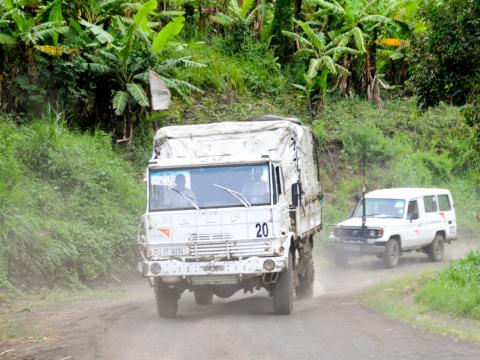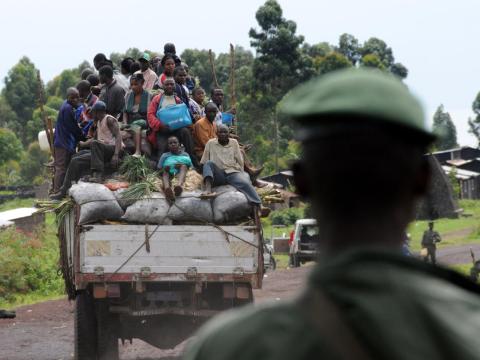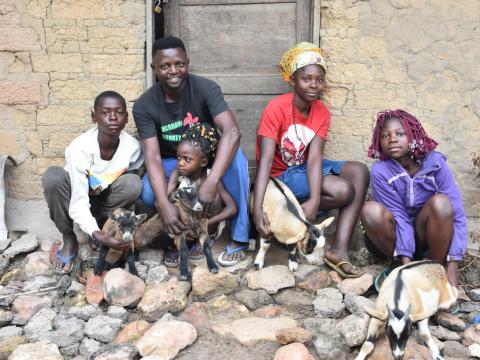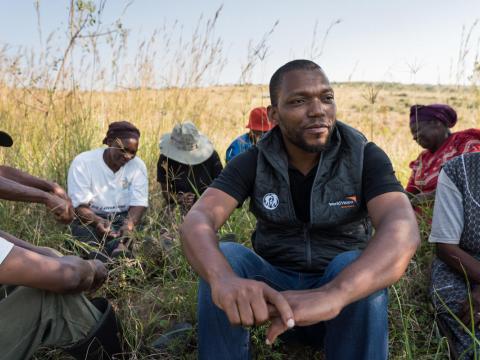
Understanding risk and nexus programming
On the penultimate day of the Humanitarian Network Partnerships Week, Johan reflects on the importance of risk analysis when undertaking nexus programming.
Last year I travelled on the N2 road between Goma and Rutshuru in eastern DRC. The N2 is mostly a bumpy dirt road where large supply trucks, motorcycles, bicycles and playing children compete for space. It’s the same road where the Italian ambassador was killed in 2021.
At the time travel on this road, we required a good understanding of and connection with multiple armed entities who control different components of it, to ensure travel was safe on the day.
These security checks were done generally a few days prior to travel, as well as the morning of the journey. Until the person at the end of the line answers and grants permission, we do not move.
As an organisation that does not use weapons to gain access, our presence is contingent upon permission from those who do control the territory that we want to access. That means we need to know who that is, be able to communicate with the right people, and be in a position where they allow us to operate.
Getting to that point does not happen by accident but through a carefully thought-out plan to ensure that we maintain access through acceptance to be able to reach the most vulnerable children in need.
One of these steps is context analysis. Simply put, we must understand the area, its people. its dynamics power structures. We must also seek to understand not only what it looks like today, but what it may look like tomorrow. Conflict areas, such as the one that includes the N2 road, often change. It is not sufficient to have a good understanding of what it looks like now, but we must always seek to forecast the future and anticipate who it may change.
Secondly, in addition to understand the context, we should strive to help the context understand us. This is about programme design, organisational profile, branding and intentional communication and community engagement.
The humanitarian principles are often cited in this conversation as a justification for why humanitarian staff are not, and should not, be targeted, because they are neutral, impartial, independent and focused on the good of humanity.
As many aid organisations are learning the hard way through incidents and denied access, this argument does not work as well as we would like. It is perhaps good to remember where these principles originated so that we can better implement them in today’s environment.
In short, the origins of those principles can be traced back to the battle of Solferino in 1859, where Henry Dunant and others helped wounded soldiers who had been left on the battlefield. Dunant and his friend wanted to simply provide care for those injured in the battle, and this birthed the Red Cross organisation and the associated Geneva Conventions.
Today, as we gather in Geneva to discuss humanitarian-development-peacebuilding nexus programming, the scope of work has dramatically exceeded what those principles were initially envisioned for. The aim of saving lives is still there, but the scope and potential for misunderstandings of modern-day multi-mandates organisations is much bigger than for the small group of humanitarians that Henry Dunant led onto that field in 1859.
As such, it is increasingly essential that organisations seeking to operate across the nexus do so with a good understanding of the risks of that, and that they manage that risk through holistic security risk management that takes into account changing and fragmented perceptions of organisations in volatile contexts.
So, while holistic and integrated nexus programme is good and can often increase access and acceptance, sometimes it can also be an obstacle to avoid or to manage. Good security risk management is therefore needed both to handle that management but also to monitor the context, risk and acceptance levels to know when and how it needs to be managed.
Johan Eldebo is World Vision's Regional Security Director for Southern Africa. Follow Johan on Twitter @johaneldebo


